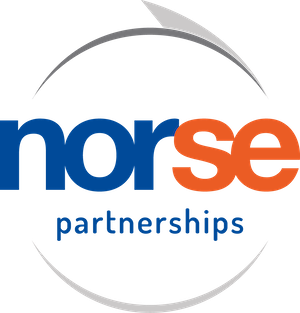Report acknowledges Norse as UK’s largest local authority trading company
An independent report by leading business and financial adviser Grant Thornton UK LLP, which looks at latest trends in Local Authority Trading Company (LATCs), states that Norse Group is now the largest such organisation in the country.
According to Grant Thornton’s research there are 743 trading companies in England, Scotland and Wales, and the report points out that the Norse Group remains the clear market leader amongst all local authority trading companies, with a turnover in excess of £300m.
Entitled ‘In Good Company’, the report looks at:
• A shift from outsourcing to insourcing
• Steps for success
• Choosing the right model
• Developing a robust business case
• Future direction
Looking at the various LATC options, the report concludes that Joint ventures (JVs) have ‘become increasingly popular as a means of leveraging growth, in particular between public sector entities’. It acknowledges that the model has been pioneered by Norse, and goes on to analyse the Group’s commercial, operational and ethical approach:
“Norse has a significant number of joint venture companies, most of which are 80% owned by the Norse Group and 20% owned by the partner council. Any profit share is 50/50 between partners.
“Norse has a low margin but high scale business approach with a focus on efficiency and growth to support the creation of jobs.
“They look to be competitive with private firms and constantly develop their commercial skills and demonstrate an ability to operate in a commercial environment.
“Norse has grown through partnering with other local authorities using their JV model, and has put its success down to a range of factors including:
• Flexibility in approach: it is important to recognise that a one-size fits all approach does not work. Every company is different
• Recruitment from commercial world – a deliberate strategy to bring in required skills which leads to a change in the culture of the organisation
• Rebranding – opportunity to move away from being too closely associated with the local authority, which improves the perception of the company in a commercial world. Marketing and branding is important in changing an organisational culture.
• Positioning itself as a commercial organisation rather than an LATC
• Running the company’s own systems itself rather than relying on the council’s, ie HR, accounting and, sales and marketing
• Awareness of the political environment and ensuring members support the rationale of the company
The report also says that part of the reason for the recent rise of trading companies is the decline in popularity of outsourcing to the private sector, a sentiment that resonates with Norse Sales Director Geoff Tucker:
“Eight years ago, when funding cuts really began to bite, everyone thought outsourcing to the private sector, with its economies of scale, commercial expertise and investment in technology, would provide a failsafe route to both financial and efficiency savings.
“The problems that developed down the line centred on the long-term and inflexible structure under which outsourcing agreements were created. They committed the cardinal sin of short-termism with regard to provider-profit and instant cost-savings for the local authority client. In an environment of increasing financial volatility and economic instability, such approaches were never going to be sustainable.
“The public-public partnership approach that is at the heart of the Norse model”, Tucker concludes, “does away with the traditional, prescriptive supplier/client relationship by adopting mutually agreed and shared values, objectives and outcomes. It also embodies an ‘ethical commercialisation’ that truly works to the benefit of all stakeholders, including the human resources and supply chain.
“We see this as an alternative way of insourcing services, far removed from the cumbersome and problematic outsourcing that arose in the early years of this decade.”


